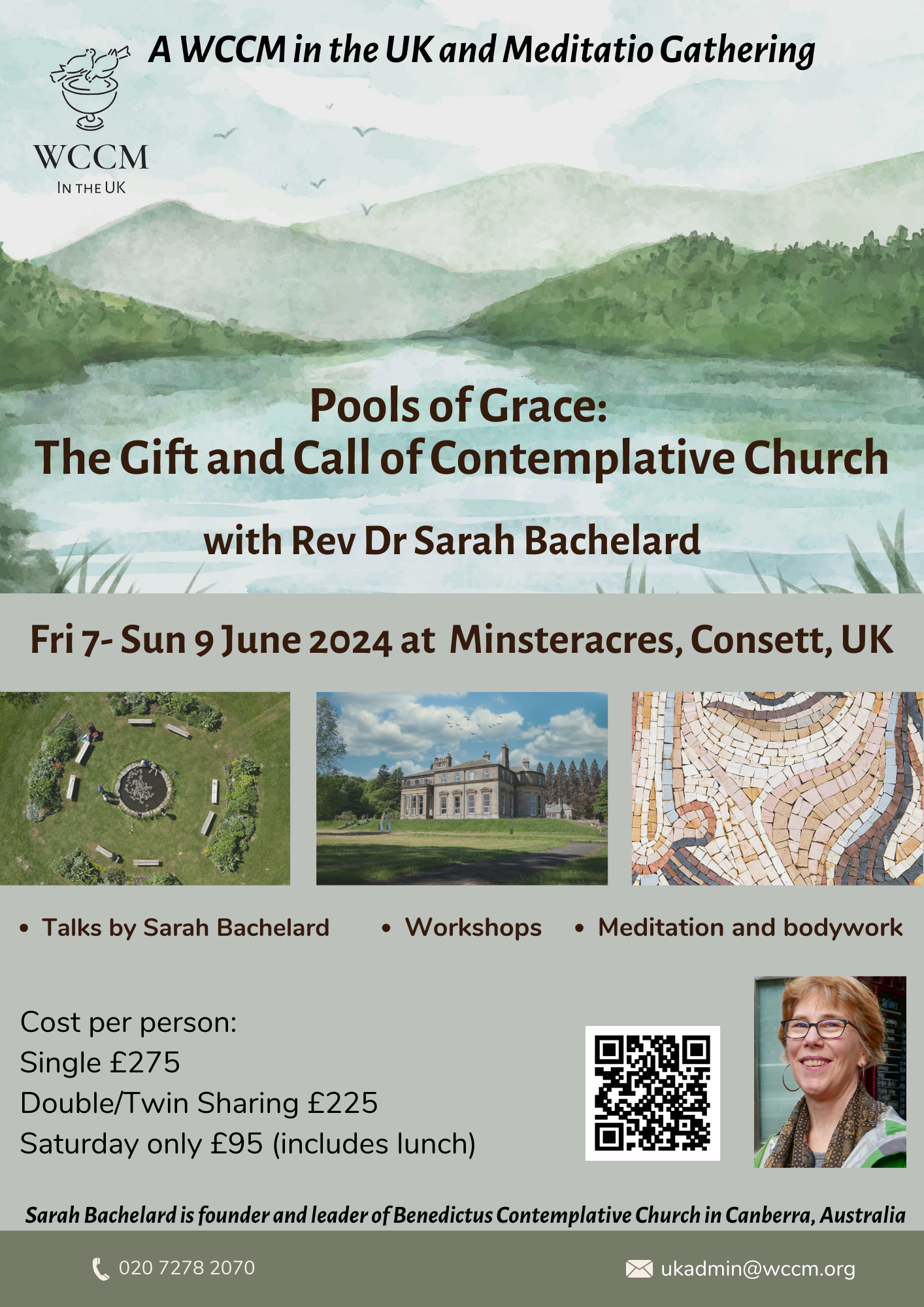A WCCM in the UK and Meditatio Gathering with Rev Dr Sarah Bachelard
It’s often said the crises of our age reflect a crisis in our humanity. We live in a culture and an economic paradigm that has encouraged us to forget our place as participants in a larger whole, dependent on goods we do not generate. As a result of this forgetting, we seem to be undergoing a collapse of systems at almost every level – institutional, economic, social, ecological. More and more people recognise that responses to this unravelling must go deeper than technological solutions or tweaks to the existing order. They must reconnect us to deeper rhythms of reality.
It’s not surprising, then, that more and more people are drawn to contemplative practice and community. It’s as if an inner wisdom calls us to seek fuller ways of knowing and being. Many are looking for something like what St Benedict called ‘schools for the Lord’s service’, communities rooted in and sustained by a larger life, where truth can be faced and possibilities discerned.
Many churches seek to be such spaces. They offer ways of learning and practising contemplation, ranging from weekly meditation groups, to regular contemplative services, retreats and labyrinth walks. Fewer churches, however, take an avowedly contemplative approach to everything they do and are. Meditation groups may be one of the activities offered, but meditation is not at the heart of every liturgy. And I wonder what difference this might make?
Almost thirteen years ago, we founded Benedictus Contemplative Church in Canberra, Australia. We have been exploring what it means to let contemplative practice shape the whole of our life together, from our worship to other ways of gathering, from governance to our sense of mission and service. I always emphasise that contemplative church is not primarily about a certain style of worship, involving hushed tones, flickering candles and Gregorian chant – Christianity for introverts. Rather, contemplative church has a practice at its heart, the practice of silent meditation. This, I think, is what opens the community to the reality of God and a journey of faith that is more than doctrinal, devotional or moralistic. Like the WCCM, Benedictus is rooted in the Christian tradition, but the priority of practice means we need not be threatened by other traditions or perspectives. It means that wherever people are on their journeys of faith and doubt, they can participate in their own way and at their own pace.
I am honoured to be joining next year’s gathering of the UK WCCM community to offer some reflections on the vocation and promise of contemplative church. From the establishment of new, ecumenical communities like Benedictus to the transformation of existing parishes and congregations, there are many forms contemplative church can take. Different contexts invite different responses, and this UK gathering will be an opportunity to listen and learn from each other’s experience, open to what might emerge. Those exploring the possibilities of initiating and enabling contemplative forms of church and community may find it of particular relevance, and everyone is welcome.
Sarah Bachelard
Rev. Dr. Sarah Bachelard is the founder and leader of Benedictus Contemplative Church, based in Canberra, Australia. For the past 13 years, Benedictus has been exploring what it means to be a contemplative worshipping community engaged with the needs of our world.
